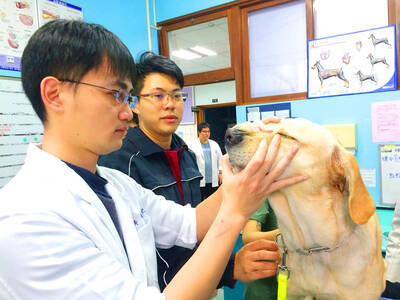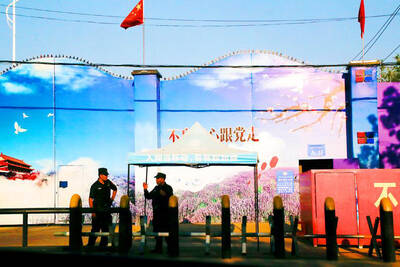Eight members of the Presidential Office’s Human Rights Consultative Committee yesterday cast doubt on newly passed amendments to the Labor Standards Act (勞動基準法).
In an opinion piece published by the Chinese-language Apple Daily yesterday, the members said that the amendment process was rash and cursory; that the amended law’s contents violate the International Covenant on Economic, Social and Cultural Rights (ICESCR); and that it could lead to more overworked employees in Taiwan
The eight included Taiwan Labour Front secretary-general Sun Yu-lien (孫友聯), Executive Yuan Office of Energy and Carbon Reduction Deputy Executive Officer Lin Tze-luen (林子倫), and Taiwan Alliance for the Advancement of Youth Rights and Welfare secretary-general Yeh Ta-hua (葉大華).
The members called on the Ministry of Labor and government agencies that oversee the government’s compliance with the International Covenant on Civil and Political Rights (ICCPR) and the ICESCR to publish an official report on the amendment process.
According to Article 32-1 of the act, employers and employees should jointly decide the deadline for using up compensatory holidays requested instead of overtime pay. If an employee fails to use their holidays by the agreed deadline or by the time they leave the company, the compensatory days must be converted into overtime pay.
The item severely infringes on workers’ rights and if no clear regulations for limitation of compensatory days off are established, it could lead to workers being forced to work overtime during intensive periods and to take compensatory days off during off-seasons, the committee members said.
Workers could also be cheated out of their overtime pay, they added.
The amendments allow companies to increase their overtime quota and cut the rest time between shifts, which affects workers’ rights and violates guarantees of workers’ wages and vacation days as required by the ICESCR, they said.
The amendment also contravenes the government’s promises that it would see to the implementation of all rights as required under the two covenants and that workers’ rights would not regress, they added.
Executive Yuan spokesman Hsu Kuo-yung (徐國勇) said the amendments would not affect labor rights, while they do increase the room for flexible arrangements between employees and employers.

Former Czech Republic-based Taiwanese researcher Cheng Yu-chin (鄭宇欽) has been sentenced to seven years in prison on espionage-related charges, China’s Ministry of State Security announced yesterday. China said Cheng was a spy for Taiwan who “masqueraded as a professor” and that he was previously an assistant to former Cabinet secretary-general Cho Jung-tai (卓榮泰). President-elect William Lai (賴清德) on Wednesday last week announced Cho would be his premier when Lai is inaugurated next month. Today is China’s “National Security Education Day.” The Chinese ministry yesterday released a video online showing arrests over the past 10 years of people alleged to be

THE HAWAII FACTOR: While a 1965 opinion said an attack on Hawaii would not trigger Article 5, the text of the treaty suggests the state is covered, the report says NATO could be drawn into a conflict in the Taiwan Strait if Chinese forces attacked the US mainland or Hawaii, a NATO Defense College report published on Monday says. The report, written by James Lee, an assistant research fellow at Academia Sinica’s Institute of European and American Studies, states that under certain conditions a Taiwan contingency could trigger Article 5 of NATO, under which an attack against any member of the alliance is considered an attack against all members, necessitating a response. Article 6 of the North Atlantic Treaty specifies that an armed attack in the territory of any member in Europe,

LIKE FAMILY: People now treat dogs and cats as family members. They receive the same medical treatments and tests as humans do, a veterinary association official said The number of pet dogs and cats in Taiwan has officially outnumbered the number of human newborns last year, data from the Ministry of Agriculture’s pet registration information system showed. As of last year, Taiwan had 94,544 registered pet dogs and 137,652 pet cats, the data showed. By contrast, 135,571 babies were born last year. Demand for medical care for pet animals has also risen. As of Feb. 29, there were 5,773 veterinarians in Taiwan, 3,993 of whom were for pet animals, statistics from the Animal and Plant Health Inspection Agency showed. In 2022, the nation had 3,077 pediatricians. As of last

XINJIANG: Officials are conducting a report into amending an existing law or to enact a special law to prohibit goods using forced labor Taiwan is mulling an amendment prohibiting the importation of goods using forced labor, similar to the Uyghur Forced Labor Prevention Act (UFLPA) passed by the US Congress in 2021 that imposed limits on goods produced using forced labor in China’s Xinjiang region. A government official who wished to remain anonymous said yesterday that as the US customs law explicitly prohibits the importation of goods made using forced labor, in 2021 it passed the specialized UFLPA to limit the importation of cotton and other goods from China’s Xinjiang Uyghur region. Taiwan does not have the legal basis to prohibit the importation of goods